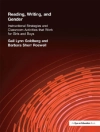‘Remains among the most brilliant summaries of key ideas animating anthropology. In his famously accessible writing style, Eriksen introduces fundamental questions that shape human life, and provides an overview of the discipline’s contribution to the pressing issues of our times. A must-read’ Ursula Rao, Director, Anthropology of Politics and Governance, Max Planck Institute for Social Anthropology
‘This is not just another book in the library of anthropology; it is an entire anthropological library in one book’ Tim Ingold, Emeritus Professor, University of Aberdeen
‘A masterful introduction’ Vered Amit, Professor Emerita, Concordia University
This introduction to social and cultural anthropology has become a modern classic, revealing the rich global variation in social life and culture across the world.
Presenting a clear overview of anthropology, it focuses on central topics such as kinship, ethnicity, ritual and political systems, offering a wealth of examples that demonstrate the enormous scope of anthropology and the importance of a comparative perspective. Using reviews of key works to illustrate his argument, for over 25 years Thomas Hylland Eriksen’s lucid and accessible textbook has been a much respected and widely used undergraduate-level introduction to social anthropology.
This fully updated fifth edition features brand new chapters on climate and medical anthropology, along with rewritten sections on ecology, nature and the Anthropocene. It also incorporates a more systematic engagement with gender and digitalisation throughout the text.
Thomas Hylland Eriksen is Professor of Social Anthropology at the University of Oslo and former President of the European Association of Social Anthropologists (EASA). He is the author of numerous classics of anthropology, including Ethnicity and Nationalism and What is Anthropology?
Innehållsförteckning
Series Preface
Preface to the fifth edition
1. Anthropology: Comparison and Context
2. A Brief History of Anthropology
3. Fieldwork and Ethnography
4. The Social Person
5. Local Organisation
6. Person and Society
7. Kinship as Descent
8. Marriage and Relatedness
9. Social differentiation 1: Gender and Age
10. Social differentiation 2: Caste and Class
11. Religion and Ritual
12. Language and Cognition
13. Politics and Power
14. Political identity 1: Ethnicity and the Politics of Identity
15. Political identity 2: Nationalism and Minorities
16. Economic Anthropology 1: Exchange and Consumption
17. Economic Anthropology 2: Production and Technology
18. Humanity and the Biosphere
19. Complexity and Change
20. Medical Anthropology
21. Anthropology and the Paradoxes of Globalisation
22. The Anthropology of Climate Change
Epilogue: Making Anthropology Matter
Bibliography
Index
Om författaren
Thomas Hylland Eriksen is Professor of Social Anthropology at the University of Oslo and former President of the European Association of Social Anthropologists (EASA). He is the author of numerous classics of anthropology, including Small Places, Large Issues, Ethnicity and Nationalism and What is Anthropology?












